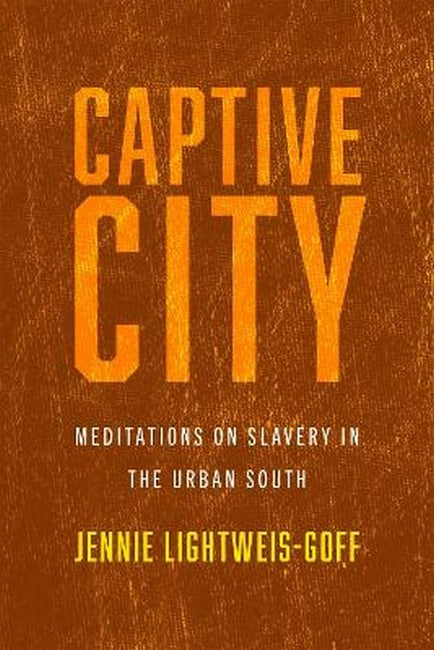Jennie Lightweis-Goff is a Lecturer of English at Texas A&M University.
Request Academic Copy
Please copy the ISBN for submitting review copy form
Description
"Jennie Lightweis-Goff's America is a merciless, beautiful, intelligent creature. She shimmies through its mess of intermingled histories and arteries with sharp sophistication. Her prose-which is singular and brilliant-is equal to the stories she tells." (Celeste Marcus, Liberties Journal of Culture and Politics) "This book is valuable not only for those curious about how enslaved individuals viewed urban spaces but also for those exploring the connections between slavery, urban settings, and historical memory...Lightweis-Goff's important volume offers an intriguing blend of history and ruminations about slavery, its legacies, and the urban environment. Anyone interested in slavery and historical memory will find this book informative, powerful, and thought-provoking." - Jonathan A. Noyalas (Emerging Civil War) "Urban slavery, especially the experiences of enslaved women in southern cities, is 'in hiding, and on display,' as the author states, in this poetic, revelatory book. Instead of focusing on escape or fugitivity, Jennie Lightweis-Goff explores what it meant for Black people in bondage to live, labor, stay put, and move around within and between Baltimore, New Orleans, Savannah, and Charleston. The allure and dangers of these sister cities are both historic and ongoing. Captive City makes them legible in surprising, captivating, haunting ways through the voices of the enslaved, the early travel writings of white visitors, and the author's own vividly described wanderings and observations." (Barbara McCaskill, author of Love, Liberation, and Escaping Slavery: William and Ellen Craft in Cultural Memory) "In Captive City, Jennie Lightweis-Goff shows once again that as an anthropologist of American life she is like no other. As keen a thinker as she is an observer, she has fresh things to say about everything she sees. And she writes like an angel-a profoundly humane angel." (Leon Wieseltier)

